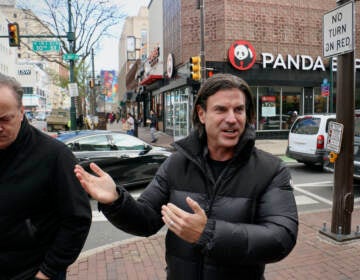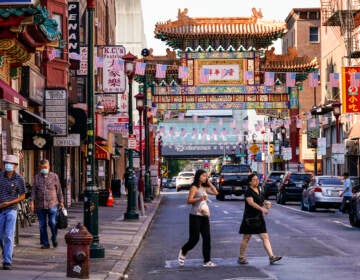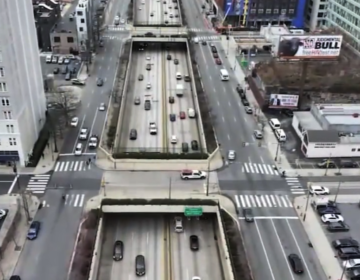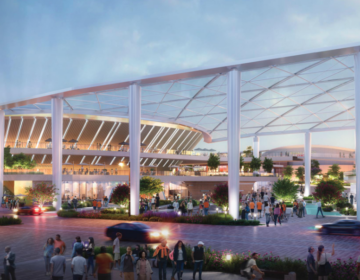Majority of Chinatown businesses fear Sixers arena would ‘destroy’ the neighborhood
A majority of business owners in Chinatown have signed a petition formally opposing the project, which would sit feet from the neighborhood.
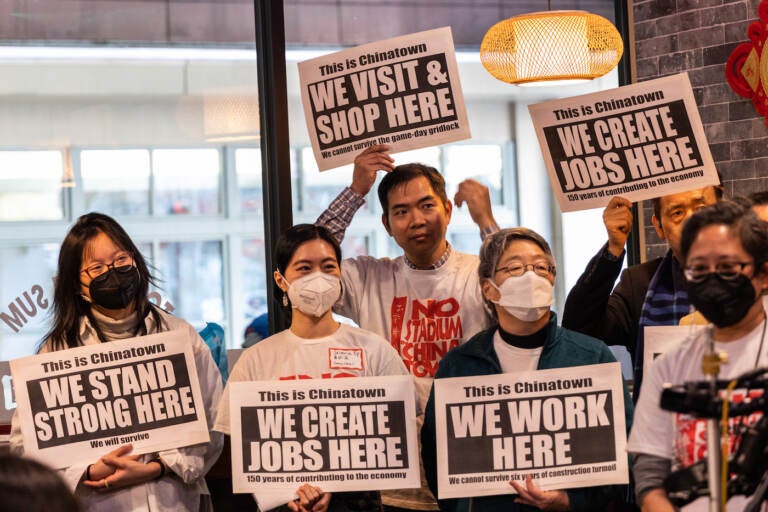
Members of the Chinatown community joined leaders at the announcement of the Chinatown Coalition to Oppose the Arena at Tom’s Dim Sum restaurant in Philadelphia on January 9, 2023. (Kimberly Paynter/WHYY)
The initial feedback from Chinatown’s business community is clear: It does not want the Philadelphia 76ers to build a new basketball arena in its backyard.
Chinatown is home to some 120 businesses, said longtime resident YingZhang Lin. Over the last week, he and others have approached the majority of them with a petition formally opposing the $1.3 billion project, the back of which would sit less than 10 feet from the 150-year-old neighborhood.
So far, about 90 owners have signed the one-page petition, which states the arena would “destroy” Chinatown, according to a copy obtained by WHYY News. The results were announced during a related news conference held Monday by a new grassroots coalition.
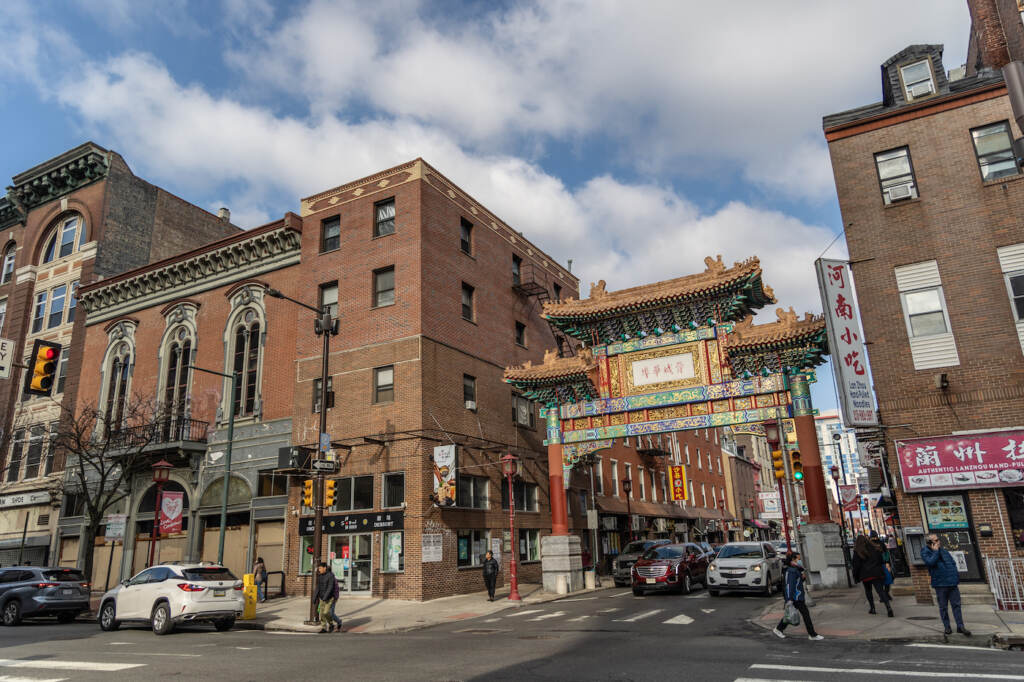
“They deeply love Chinatown,” said Lin, who also runs World Financial Group near 10th and Race streets. “When I talk to them, I can feel they really don’t like bigger things coming here to destroy Chinatown. People want it to stay. I can see this is a very clear message.”
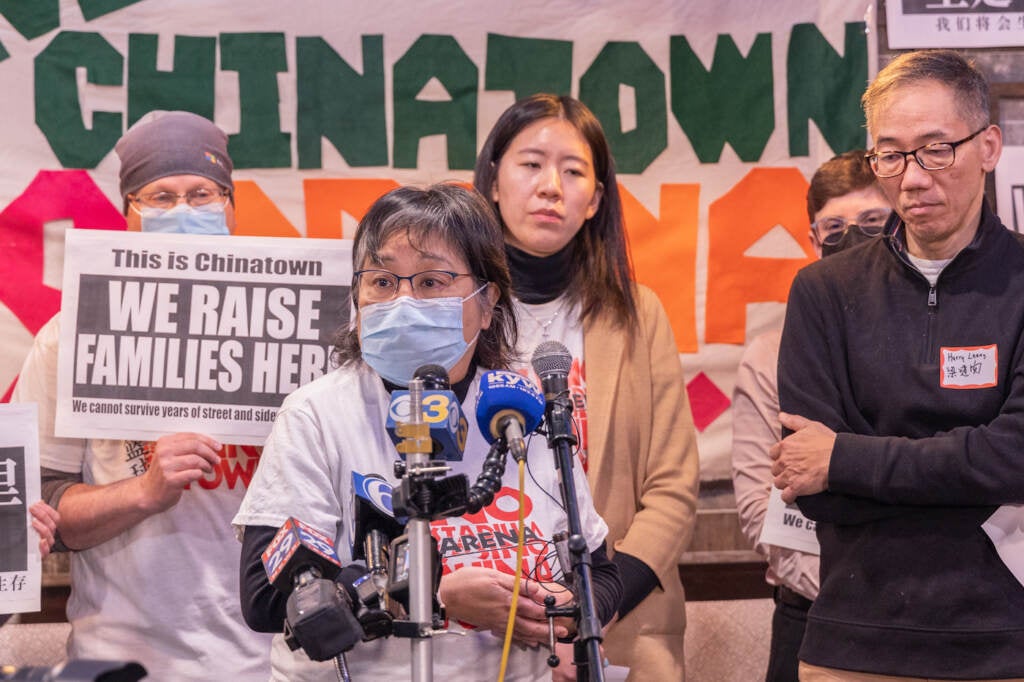
The business owners who have signed the petition raised concerns about parking, traffic, and public safety, as well as the impact the arena could have on their businesses, said Lin.
Opponents of the project worry the development will create such a traffic nightmare that people will look to avoid Chinatown when the Sixers have home games. They have also expressed doubts that fans will patronize Chinatown restaurants before or after games, believing they will opt to eat from arena concession stands.
“If the culture disappears … their children and their grandchildren won’t be able to see it again,” said Wei Chen, a member of Asian Americans United, a group that has strongly opposed the Sixers proposal since it was announced in July.
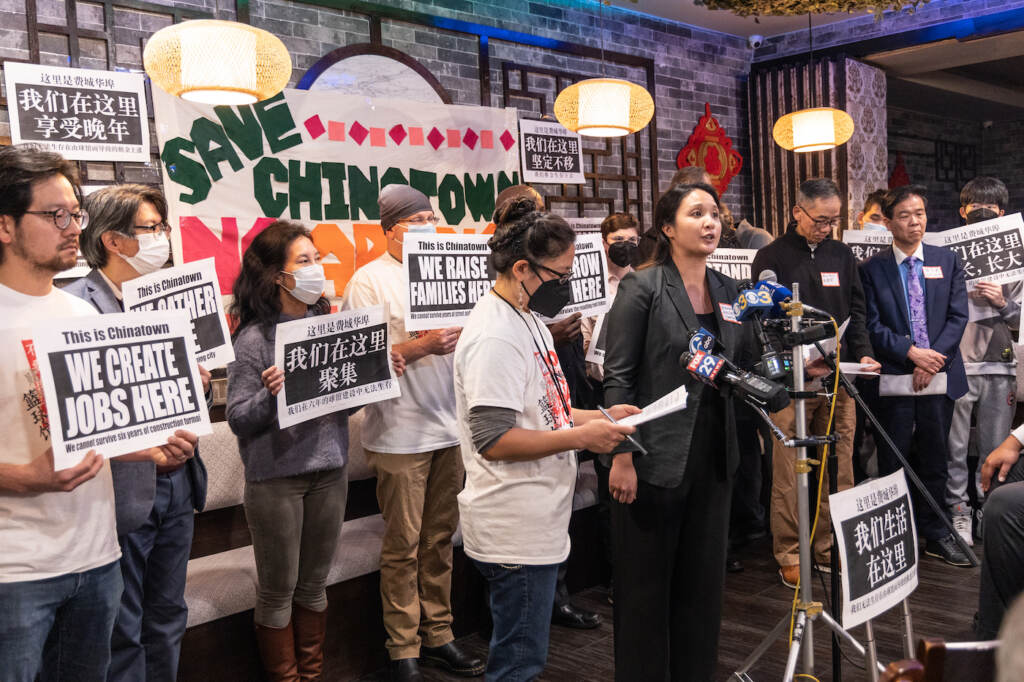
In a statement, a spokesperson said the Sixers will “continue to meet with community stakeholders to discuss the facts surrounding the proposed arena and how it will positively impact the area around Market East in Center City and across Greater Philadelphia.”
Since announcing the project, the Sixers development team has participated in more than 30 meetings with community groups representing Chinatown and other adjacent neighborhoods. David Adelman, a part-owner of the team, has said the majority of people he’s presented the project to were “neutral to positive” about the development, making him hopeful a community benefits agreement can come together sooner rather than later.
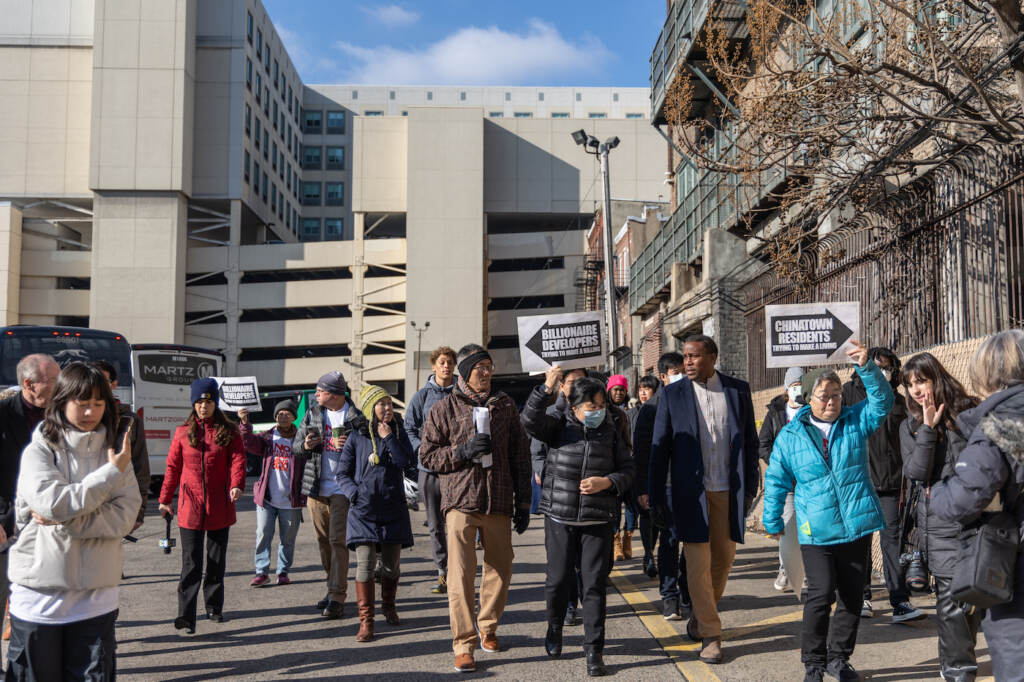
“People are really receptive to what we’re looking to do,” said Adelman during a November press tour of the arena’s proposed footprint. “And the main reason is if we don’t do this and the mall goes bankrupt, someone knocks it down, you could build three Liberty Place towers on those three blocks by right … and the community would get nothing.”
The agreement, which could total $50 million, is considered key to the project becoming a reality. It’s expected to include money for initiatives aimed at improving public safety, supporting small businesses, and creating affordable housing. It would remain in place for at least 30 years and be legally binding.
Adelman has said he wants to have the agreement in place before securing necessary zoning for the project, which he anticipates having by June.
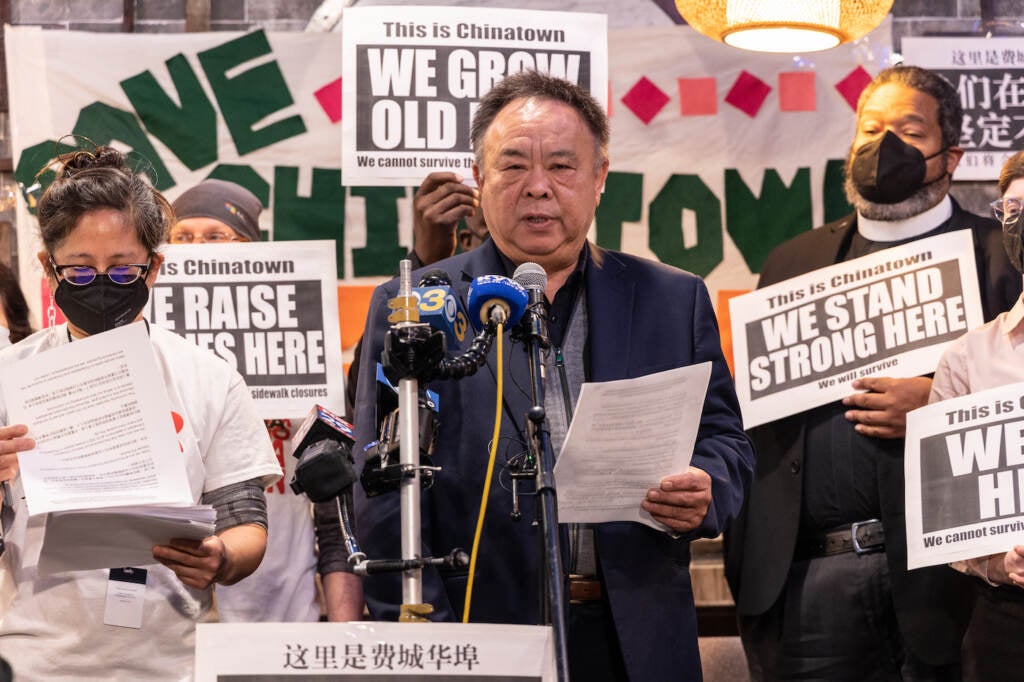
City Councilmember Mark Squilla, whose district includes the proposed arena, has not provided a timeline for introducing legislation. “There is a lot more community engagement that is needed before we would get to that point,” he said in November.
The Sixers hope to open the new arena in 2031, the same year the team’s lease expires at the Wells Fargo Center in South Philadelphia.
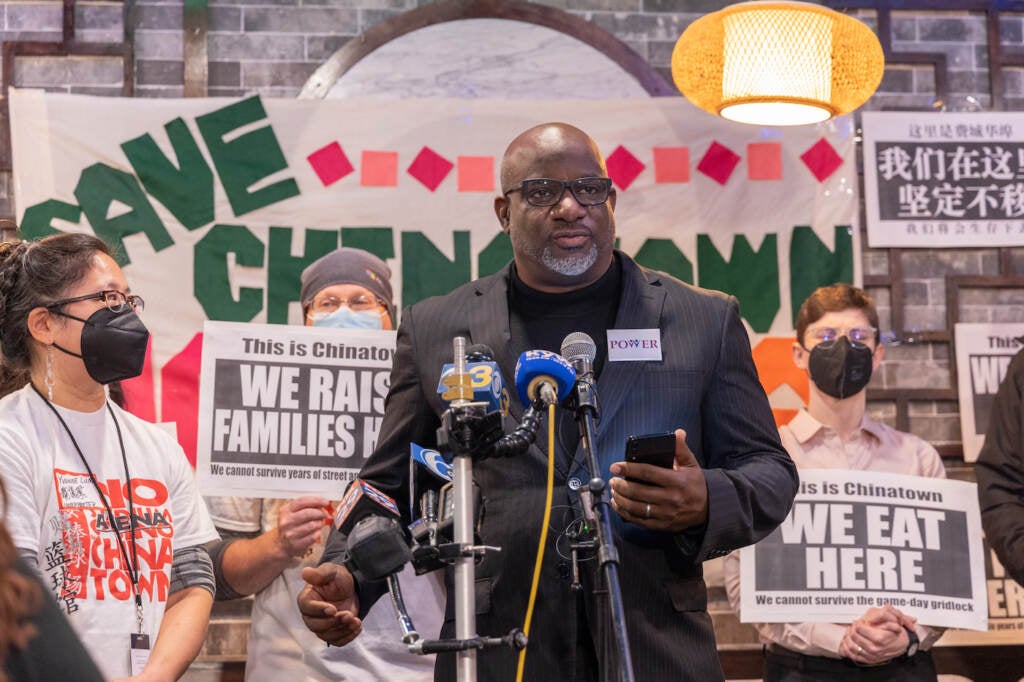

Subscribe to PlanPhilly
WHYY is your source for fact-based, in-depth journalism and information. As a nonprofit organization, we rely on financial support from readers like you. Please give today.




